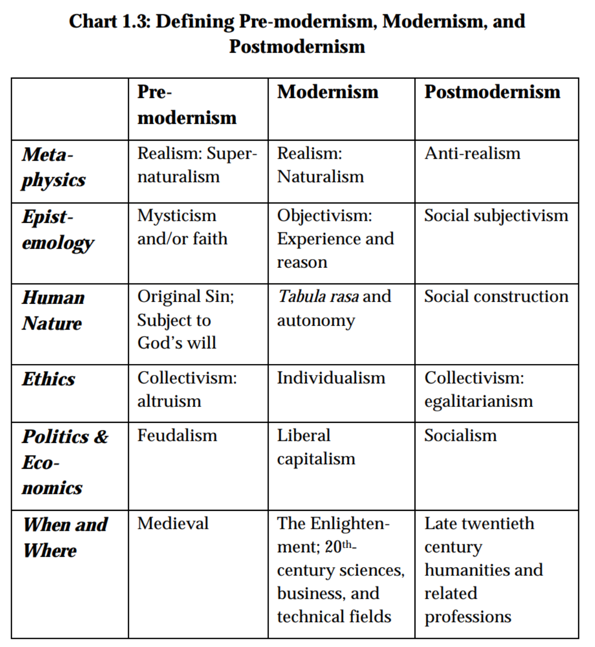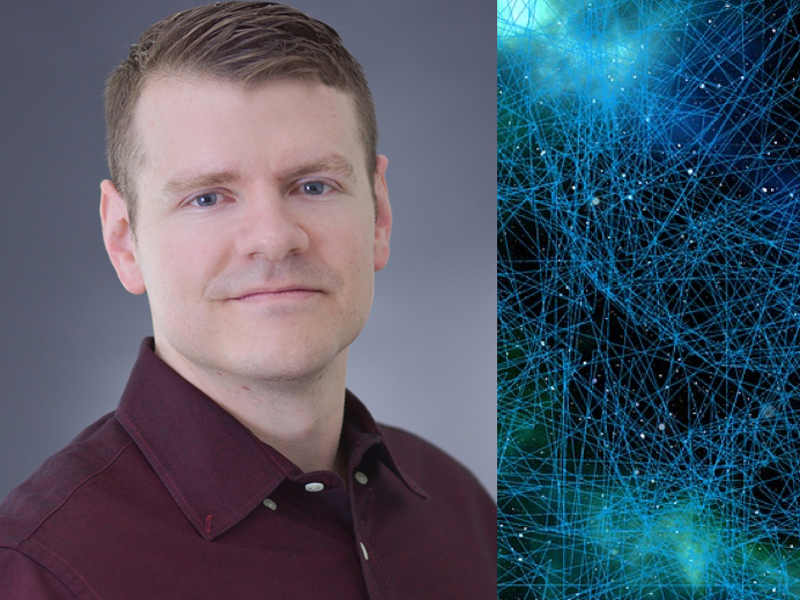PODCAST
Devoted to exploring all the philosophical and psychological ideas and practices that influence our lives, and help—or hinder—us from living fully as free and fulfilled persons.
Where to Listen
The Latest Topics

EPISODE 1:
The Art of Self-Construction: Rule Yourself
Everyone uses philosophical ideas whether they know it or not. They are often hidden in catchphrases we accept and haven’t fully thought about. Find out how to identify ideas that affect you so you can decide whether you want to keep them or not. Learning how to trace ideas back to their original premises takes some philosophical detective work. Deciphering the basic premises of everyday catchphrases becomes easier the more you train your mind to find them.
Here are some links to topics we reference in this episode:
- Learning how to trace ideas back to their original premises. Use the essay “Philosophical Detection” in this book, Philosophy: Who Needs It, by Ayn Rand.
- How the adolescent brain works: “The adolescent brain: beyond raging hormones.” (Harvard Health Blog.)
- More on the development of the prefrontal cortex: “Are teenage brains really different from adult brains?” (Molly Edmonds, HowStuffWorks.com)
- An example of taking ideas to their logical end: The Organization for Voluntary Human Extinction.
- Controversy over DDT and deaths by malaria: “The Regulation of DDT: A Choice Between Evils” by ( Ashley K. Martin, Vanderbilt Journal of Transnational Law).
- The nutritional benefit of organic food, and the use of organic pesticides: “Is organic food actually better? Here’s what the science says” (Mihai Andrei, ZMEScience.com) and “The Biggest Myth About Organic Farming” (Ross Pomeroy, RealClearPolitics.com)

EPISODE 2:
Thinking in Principle
Ideas are all around—some helpful and some destructive to self-improvement. The first step towards taking control of your mind is identifying first-hand where your ideas come from. To do this, you need to learn how to “think in principle.”
Just like a mathematical or scientific theory can provide a foundational truth that you can apply to a wide range of things, finding the principles that rule your thinking will empower and guide you to make better decisions, especially in unclear or difficult situations. In this episode, Marsha and Liz discuss the way the human mind works through a hierarchy of ideas and principles, and provide concrete examples of how you can develop the habit of “thinking in principle,” and put principles into action.
Identify where your ideas come from
Everyone uses philosophical ideas whether they know it or not. They are often hidden in catchphrases we accept and haven’t fully thought about. Find out how to identify ideas that affect you so you can decide whether you want to keep them or not. Learning how to trace ideas back to their original premises takes some philosophical detective work. Deciphering the basic premises of everyday catchphrases becomes easier the more you train your mind to find them.
Principles of a Well-Ordered Mind
by Marsha Familaro Enright
“The hallmark of a well-functioning mind is the ability to identify facts, analyze ideas, integrate knowledge, and successfully translate principles into action.” – Marsha Familaro Enright
- Do I regularly ask myself what evidence I have for thinking this idea or that conclusion?
- Do I ask myself if the evidence is sufficient for my conclusion? Is the evidence necessary for my conclusion?
- Do I know how much evidence I need to come to a conclusion?
- Do I have clear definitions for my words? When I have a clear definition for a word I can…
- When I think something is true or false, do I search for counter-examples to my belief?
- Do I apply the above to anything I think?
- If I use an idea in my life, do I ask myself how it affects me?
- The truth is more valuable than “being right” because the truth will lead me to what I need to know to achieve my values and goals. Am I committed to the truth strongly enough that I easily admit I am wrong? If not, am I questioning myself about why I won’t admit being wrong when it happens?
- Have I systematically examined my philosophical ideas and principles?
- Have I clearly thought about the relationships of my most abstract ideas to the less abstract ones they depend on?
- Have I identified their connections with the facts clearly?
- Have I changed them if they’re not clear?
- Do I habitually try to find these relationships with all my ideas and conclusions, no matter the topic?
- Have I found the connections between my ideas and integrated them, identified how one idea and set of facts is related to another, melding them into a connected understanding?
- What are the relationships between the facts and concepts in my different fields of knowledge? For example, how does science relate to history?
- Can I identify what subjects and which of their principles apply to a particular question and problem?
- Am I able to recognize basic philosophical ideas and relate them to commonly held conclusions?
- Do I regularly try to pay attention to my feelings and analyze what ideas/premise(s) gave rise to the feeling?
- Do I have a clear structure of common human motivations in my mind? (self esteem, love of children, jealousy, greed)
- How do I recognize when a person respects the autonomy of another?
- Thinking in principle is similar to identifying the “invisible scripts” that guide our lives, like Ramit Sethi describes: “The invisible scripts that guide our lives”
- Sethi talks about how you can harness behavioral psychology to your benefit on the Art of Manliness podcast: “Harvesting behavioral psychology for a rich life”
- Fermi’s Paradox (Wikipedia)
- The real reason for rising college tuition: “Why is tuition so high?” (Ellen Wexler, Inside Higher Ed) and “The Real Reason College Tuition Costs So Much” (Paul F. Campos, The New York Times)
- How self-help is useless without the help of big ideas: “The Power of Positive Publishing: How self-help ate America” (Boris Kachka, New York magazine)
Principle vs Formula:
Principle: Honesty is the best way to live a good life. (It requires a bit of thinking to decide when to use this principle).
Formula: Always be honest.

EPISODE 3:
Violence on campus
You’ve seen the violence on campuses: the shouting down of speakers, the physical attack on people of opposing ideologies, the quick accusations of racism and special privilege. You’ve also probably heard that words are considered violence. These are new reactions to debate and disagreement! Where did all of this come from?
From the ideas of Postmodernism. Understanding this philosophy is key to understanding our culture at large today. We discuss this tricky term and the powerful influence its ideas have had, including the way many intellectuals and young people define truth, objectivity, ethics, and tolerance—and the impact of these ideas on free speech. Marsha and Liz demonstrate how the postmodernist theory of knowledge inevitably leads to violence.
- Here’s the argument between Sam Harris and Ben Affleck on the Bill Maher Show which we discuss in the podcast.
- Charles Murray speech disruption at Middlebury College (YouTube)
- Ann Coulter speech cancellation at Berkeley: “Ann Coulter speech at UC Berkeley canceled, again, amid fears for safety” (The Washington Post)
- Yale Halloween costume incident (YouTube)
- Harvard getting rid of the term “masters”: “Harvard College ‘House Masters’ to Get New Titles Because of Slavery Connotation” (Yanan Wong, The Washington Post)
- Oxford made “Post-Truth” the 2016 word of the year: “‘Post-truth’ named 2016 word of the year by Oxford Dictionaries” (Amy B. Wang, The Washington Post)
- “Herbert Marcuse: Philosopher of the New Left” by George Walsh
- Repressive Tolerance, by Herbert Marcuse
- The Righteous Mind, by Jonathan Haidt
- Jordan Peterson on Explaining Postmoderism (YouTube
- Here’s a clear exposition of Postmodernist ideas and their history: Stephen Hicks, Explaining Postmodernism: From Rousseau to Foucault (free PDF) or buy it on Amazon here.


EPISODE 4:
The Concept of Self
How much of who you are is really under your control? What are your limits? How much of you is determined by biology, by the world around you? What makes you YOU?
These questions have been debated for millennia. And the popularity of personality tests show that we still enjoy and have difficulty gaining insight to ourselves. Marsha and Liz range over wide number of ideas and philosophies about the self to find out what it is.
Here are some links to topics we reference in this episode:
- Stanford Encyclopedia of Philosophy on Mental Imagery
- Aristotle, De Anima (On the Soul)
- Article on frontal lobe development at puberty: “The adolescent brain: beyond raging hormones” (Harvard Health Blog)
- Nathaniel Branden’s The Psychology of Self Esteem
- Nathaniel Branden on what self-esteem is and it is not
- Marsha Familaro Enright’s article “The Psychology and Practice of Introspection”
- Marsha Familaro Enright’s article “The 10 Habits of Hope“
- Eugene Gendlin, “Thinking at the Edge”
- Eugene Gendlin, “Introduction to Focusing”
- Eugene Gendlin, “Crossing and Dipping (intersection between the implicit and explicit)”
- Eugene Gendlin’s line by line commentary on Aristotle’s De Anima
- Steven Pinker, The Blank Slate
- Plato, Theaetatus
- Ludwig Van Bertalanffy, Problems of Life
- The life and work of Antonio Damasio
- How your brain makes decisions before you even know it (Kerri Smith, Nature)
- Aristotle, The Nicomachean Ethics
- Buddhist concept of no self
- Homunculus
- Ortega y Gasset, The Role of Choice in Love
- Good article on advertising, related to free will: “Ads Don’t Work That Way” (Kevin Simler , Melting Asphalt)
- Early Vibrators: “The Steam-Powered Vibrator and Other Terrifying Early Sex Machines NSFW” (Adam Frucci, Gizmodo)
- George Washington’s Rules of Civility
- Hulswit, Menno, “A Short History of Causation”
- “What Does it Mean to be Authentic?” Art of Manliness Podcast episode, with psychologist Brian Little
- Experiments that show how smells of which you’re not conscious can influence whether you like or don’t like something. (Gottfried Laboratory, Northwestern University)
- Here some trial consultants evaluate the overarching conclusions about the effects of smells: “A Nose for Moral Behavior: How smell can directly affect thoughts and behaviors“
- “The Holy Grail of Self-Improvement” (Tiago Forte, Ribbonfarm blog)
- Daniel Dennet (video): Is Free Will An Illusion? What Can Cognitive Science Tell Us?
Definitions of “self”
“Self” from Dictionary of Philosophy edited by Dagobert D. Runes, 1960.
Self:
Ego, subject, I, me, as opposed to the object or to the totality of objects; may be distinguished from ‘not-me,’ as in W. James’ statement (Principles of Psychology, I, 289) ‘One great splitting of the whole universe into two halves is made by each of us, and for each of us almost all of the interest attaches to one of the halves; but we all draw the line of division between them in a different place. When I say that we all call the two halves by the same names, and that those names are ‘me’ and ‘not-me’ respectively, it will at once be seen what I mean.’
The quality of uniqueness and persistence through changes (Lat.ipse), by virtue of which any person calls himself I and leading to the distinction among selves, as implied in such words as myself, yourself, himself, etc. (By transfer, this applies to the uniqueness of anything, as in ‘itself’).
The metaphysical principle of unity underlying subjective experience, which may be conceived as dependent upon the given organism or as distinct in nature; sometimes identified with the soul.
Some philosophers doubted or even denied the existence of the self. Thus, Hume pointed out (Treatise of Human Nature, I, pr. 4) that, apart from the bundle of successive perceptions, nothing justifying the concept of self can be discerned by introspection.
The meaning of self, with its metaphysical, linguistic and psychological distinctions, has become so ambiguous that it may be useful to distinguish between:
- The self as applied to the bearer of subjective experience, or the physical or somatic (G.S. Hall, The American Journal of Psychology, 189701898) self; and
- The self as applied to the contents of that experience, or the psychological self, which is ‘an organization of experiences in a dynamic whole.’ (W. Pillsbury, Attention, 217)

EPISODE 5:
Interview with Jake Ilson
Jake Ilson is a tech advocate and ambitious 22 year old from Matthews, North Carolina. He was a young 16 year-old when he first attended The Great Connections Seminar. Hear him describe how it changed his life in a far more profound way than his deep experience at Outward Bound, why he has returned to the experience four times, and brought back its powerful lessons to use over and over again in his daily life.

EPISODE 6:
Neuroessentialism or How You Are Your Brain
Neuroessentialism is the theory that our conscious experience is nothing more than our brain activity. In this view, the definitive way of explaining psychological experience is by reference to the brain. Marsha interviews doctoral candidate in clinical psychology, William Schultz, about the research behind his paper “Neuroessentialism: Theoretical and Clinical Considerations” for the Journal of Humanistic Psychology.
He and Marsha discuss the theory and related issues, such as the existence of free will and how that fits into a scientific way of thinking about human experience. William argues in his article that a brain-centered model of mental disorders can have negative psychological effects on individuals receiving mental health treatment showing that ideas are extremely powerful.
- William Schultz’s website
- William Schultz’s paper on neuroessentialism: “Neuroessentialism: Theoretical and Clinical Considerations. (Journal of Humanistic Psychology)
- A few of his articles published on the Mad in America website.
- His professional Facebook page
- Aristotle’s view of causation
- Hulswit, A Short History of ‘Cause’







